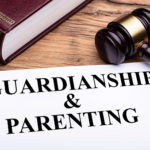Since it is obvious that we will all die one day, leaving behind a good reputation is just as important as having your estate planned before you pass on. When you plan your estate before you pass on, you create a legal document that will speak on your behalf after you have departed this world. Estate planning can be seen as an important process that helps you organize your affairs and ensure that your loved ones are taken care of after you pass away. During this process, you will decide how you intend to distribute your assets and who will manage your debts whilst also making plans for your health and well-being in case you are incapacitated to do anything.
However, planning an estate is not that straightforward as there are some important boxes you have to thick. Hence, this article will walk you through the estate planning checklist and provide step-by-step guides on getting your affairs in order, from creating a will and setting up a trust to reviewing your insurance coverage and communicating your plans to your loved ones.
Estate Planning Checklist
By following the checklist, we are about to explain, you can be sure that your wishes are carried out and that your loved ones are provided for in case of your unexpected death. But before we go ahead and explain the items on the checklist, you have to note that before you even start any estate planning process, you need to possess some documents. However, the type of documents you need varies depending on the size and complexity of your estate. But generally, it will be good to have the following documents as you’ll never know when you will need them.
- Statements for your accounts. The account in question could be your savings, retirement, or investment account.
- Documents that prove that you are the rightful owner of the properties
- If you have any outstanding debts, you must present a balance statement.
- Insurance policies
So, without any delay, here are the essential estate planning checklist
Make A List Of Your Assets And Liabilities
Before you even attempt to plan your estate, you must first list/identify all the assets you own. A word of advice: Take your time with this process. Some of the assets you need to consider include your real estate, investments, bank accounts, retirement accounts, insurance policies, and any other assets you own. Also, try as much as possible to list any debts or liabilities you have, such as mortgages, credit card balances, and loans.
Create a Will.
Simply put, a will is a legal document laying out how you want your assets to be distributed after you pass on. Inside this will, you can name a guardian for your minor children and an executor to manage your estate after you pass on. You will also be allowed to name the beneficiaries to your remaining assets that haven’t been handled through a beneficiary designation. Kindly note that your last will only kick into effect after you pass on.
Set Up a Trust
A trust is different from a will in that, unlike a will, a living trust will allow your heirs to claim your property without going to probate. A trust can therefore be defined as a legal arrangement allowing you to control the distribution of your assets while alive and after your death. Another good thing about creating a living trust is that it can help minimize taxes and protect your assets from creditors.
Name an Executor for Your Estate
Ideally, when naming an executor for your estate, you want someone you can trust and depend on, which is why you can’t rush this process. Before you name an executor, you need to check how mentally fit they are, how stable they are financially, and most importantly, how responsible they are. Anyone can be your executor; it could be your family member or your attorney.
Make a List of Important Documents.
Aside from a list of your assets and liabilities that you need to create, you also have to make a list of all your important documents. This includes your will, trust documents, power of attorney, healthcare proxy, and other important legal documents. Endeavor to Keep these documents in a safe place where your executor or other designated person can easily access them.
Make an Update to all Your Beneficiaries.
After opening a financial account, one vital mistake that many people often make is that they don’t deem it necessary to update their beneficiaries as they grow older. This negligence can be vital sometimes, as it can lead to a series of issues when it’s time to distribute the assets to your beneficiaries. Therefore, as you grow older, ensure the beneficiaries on your bank accounts, retirement accounts, and insurance policies are up to date. Also, consider naming a secondary beneficiary if your primary beneficiary dies before you.
Communicate Your Plans to Your Loved Ones.
You should always deem it necessary to let your loved ones know about your estate plan and where to find important documents. Not only will this help avoid confusion or dispute among your beneficiaries, but it will also help ensure that your wishes are carried out after your passing.
Review Your Estate Plan with an Attorney Today!
Before you plan your estate, it is always advisable to contact an estate planning attorney first. Therefore, if you live in British Columbia and you’ve decided to plan your estate, don’t hesitate to contact us at Saanichton Law Group today to help you review your estate plan to ensure it meets your needs and ensure it is in complies with Canadian government laws. Call us at 2505440727 or send us an email at info@saanichtonlaw.com today.




